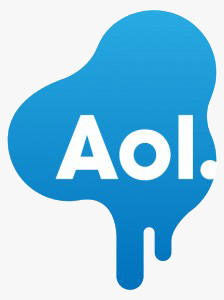The Age of Compu-Global-Hyper-Mega-Net
 There is an episode from The Simpsons (S9 E14, for the fact-checkers out there) called Das Bus wherein Homer starts up his own home-based Internet business called Compu-Global-Hyper-Mega-Net because he’s tired of everyone making money off of the Web except for him.
There is an episode from The Simpsons (S9 E14, for the fact-checkers out there) called Das Bus wherein Homer starts up his own home-based Internet business called Compu-Global-Hyper-Mega-Net because he’s tired of everyone making money off of the Web except for him.
In the show’s climax, Bill Gates shows up at the Simpson home to “buy him out” which consists of Bill Gates’ “enforcers” destroying Homer’s office and breaking a bunch of stuff. “I didn't get rich by writing a lot of checks,” Gates offers as the key to his success on the way out the door. The moral: never mess with the alpha dog.
Over the last several months, we've seen AOL Media take a decidedly different approach to attempt market domination. It has written several very large checks in what looks like an effort to achieve market domination in the media supply business. High profile purchases of the Huffington Post and TechCrunch, among others, seemed to indicate that AOL was making a concerted effort to control the news stream, if such a thing were attainable.
I was of the mindset that this was a great move for the industry, but three things dramatically changed that view.
1. The AOL Way - First, I came across this presentation, which is supposedly AOL’s master plan. The subtitle alone, referencing “Media Engineering,” gave me pause. As I thumbed through the deck, I was having a hard time seeing anything related to the quality or integrity of the news product, but a whole bunch about how page views would drive revenue.
2. High profile departures - In the days and weeks since the acquisitions, there have been some key departures. Now, while this in and of itself is not strange (lots of people leave after their companies are acquired) it was the tenor of the departures that made me anxious. Joshua Topolsky, Editor-in-Chief of Engadget, among others, suddenly seemed very motivated to try new things and expand their horizons even though they steadfastly stated that their particular outlets were NOT subject to the AOL Way. Good journalists leaving their posts always makes me nervous.
3. The icing on the cake - Bill Keller’s All The Aggregation That’s Fit to Aggregate which appeared in the New York Times on March 10, had one quote that really hit home for me:
"Buying an aggregator and calling it a content play is a little like a company’s announcing plans to improve its cash position by hiring a counterfeiter."
In short, simply repurposing someone else’s news and calling it your own, is, well, a bit disingenuous.
Taking these three things under consideration, I came to the conclusion that, much like the fictitious Bill Gates that breaks Homer’s stuff, AOL is trying to marginalize the competition by controlling the flow. This concerns me greatly.
As the sheer amount of information continues to overwhelm from both traditional and other sources, I think we need less aggregation and more unfettered access to original content. True, as blogger Josh Weichhand so succinctly put it, I fully recognize the irony of posting this entry, but I also recognize that more and more, all I am truly seeing in the “media” is one thought repackaged 1,000 times. And it’s getting increasingly frustrating to get to the fresh content.
There is probably no way to put a statue of limitations on how many times an article, quote or thought can be rebroadcast. I am also a capitalist at heart, so if someone has figured out a way to monetize the news, good for you. However, as a news consumer, I feel that if aggregators put more emphasis on revenue than information, we all lose. Journalists will be paid by how much revenue and how many page views they generate, and not by how well they cover and report the news. Once that happens, no matter how we search for news, we’ll be constantly subjected to the popular tripe that feeds the bottom line, and sent farther afield for the information that we really want. ![]()
